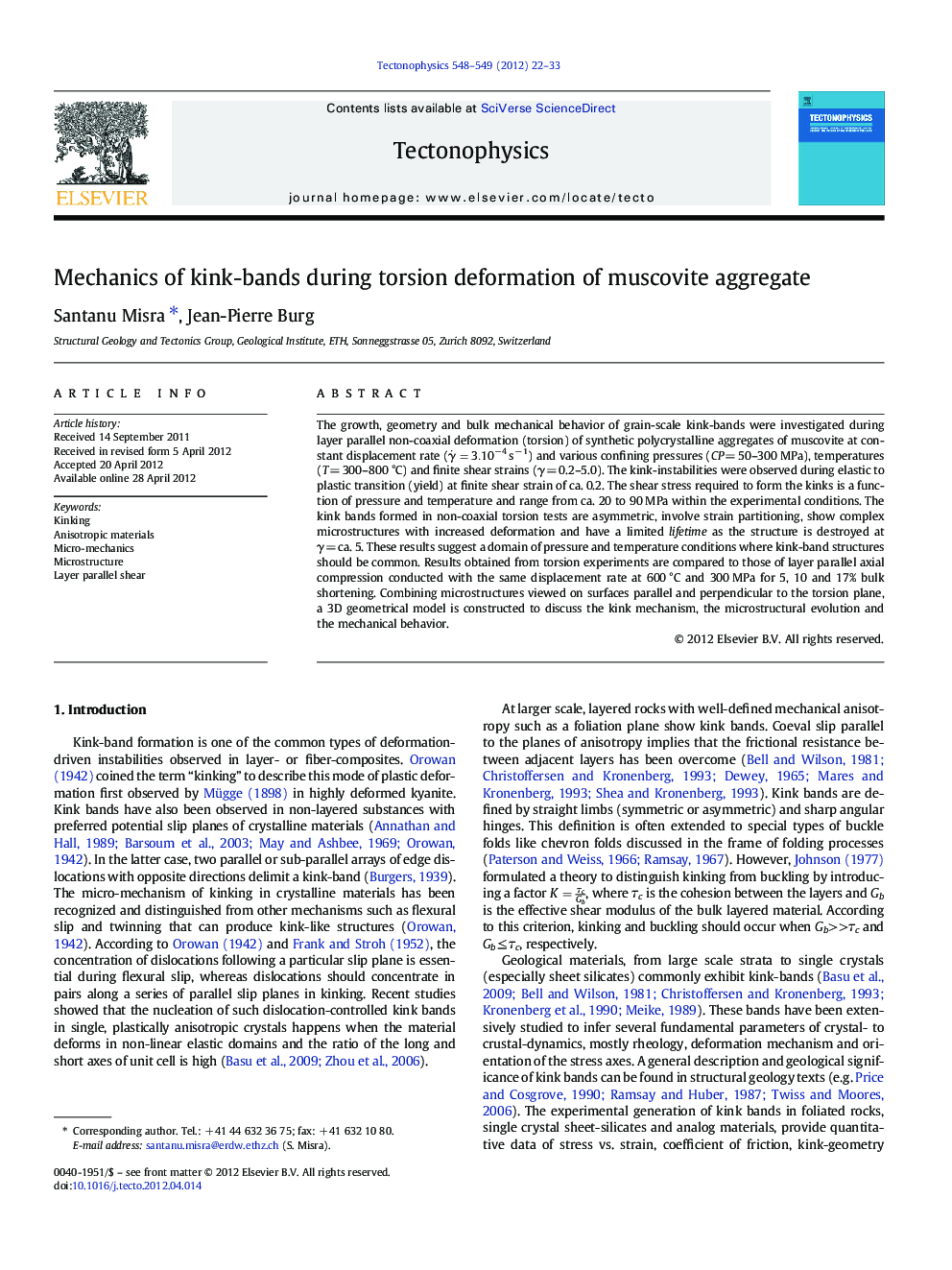| Article ID | Journal | Published Year | Pages | File Type |
|---|---|---|---|---|
| 4692801 | Tectonophysics | 2012 | 12 Pages |
The growth, geometry and bulk mechanical behavior of grain-scale kink-bands were investigated during layer parallel non-coaxial deformation (torsion) of synthetic polycrystalline aggregates of muscovite at constant displacement rate (γ˙=3.10−4 s− 1) and various confining pressures (CP = 50–300 MPa), temperatures (T = 300–800 °C) and finite shear strains (γ = 0.2–5.0). The kink-instabilities were observed during elastic to plastic transition (yield) at finite shear strain of ca. 0.2. The shear stress required to form the kinks is a function of pressure and temperature and range from ca. 20 to 90 MPa within the experimental conditions. The kink bands formed in non-coaxial torsion tests are asymmetric, involve strain partitioning, show complex microstructures with increased deformation and have a limited lifetime as the structure is destroyed at γ = ca. 5. These results suggest a domain of pressure and temperature conditions where kink-band structures should be common. Results obtained from torsion experiments are compared to those of layer parallel axial compression conducted with the same displacement rate at 600 °C and 300 MPa for 5, 10 and 17% bulk shortening. Combining microstructures viewed on surfaces parallel and perpendicular to the torsion plane, a 3D geometrical model is constructed to discuss the kink mechanism, the microstructural evolution and the mechanical behavior.
► Mechanics of grain-scale kink-bands in torsion is investigated. ► Mechanical data and microstructures from shear and compression tests are compared. ► A kink domain has been identified as function of pressure and temperature. ► 3D geometrical model is constructed to discuss the evolution of microstructures.
